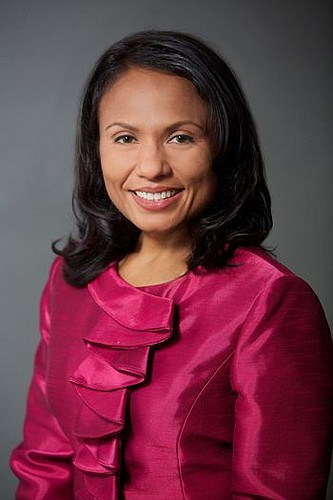
On Oct. 9, Florida held its third annual Human Trafficking Summit.
At the first gathering three years ago, my 5-year-old could have counted the bodies in the room.
This time, however, 900 or so (not counting online participants) attended the plenary session, which included honoring five trailblazers in the fight against what is more appropriately termed modern-day slavery. Three of the five were from Jacksonville.
That is to be celebrated. We have come a long way on this issue especially as it relates to awareness, civic engagement, collective action and our legal framework.
One highlight is the work of the Coalition of Immokalee Workers, a Florida group recognized by the Clinton Global Initiative this year.
The coalition launched Campaign for Fair Food, which forged alliances between farm workers and consumers to use the market power of major corporate buyers (who agreed to pay an additional penny per pound) to help end labor exploitation in Florida’s tomato industry, once dubbed “ground zero for modern-day slavery.”
The four largest fast-food companies (McDonald’s, Yum Brands, Burger King and Subway) and the three largest food service providers (Compass Group, Aramark and Sodexo) signed Fair Food agreements with the coalition.
With the exception of Trader Joe’s and Whole Foods, no other major grocery chain has signed the agreement.
Where do you shop for your groceries? As consumers, we can demand better of those with whom we do business. Moreover, if your firm represents those fast-food companies, food service providers or grocery chains not listed, you have an opportunity.
More than 35 million people around the world are trapped in slavery that includes forced labor, forced marriages, debt bondage, child soldiers, organ trafficking and commercial sexual exploitation.
Some of those are in Jacksonville, which ranks third in our state for instances of human trafficking. Florida is third in the nation.
E. Benjamin Skinner, an investigative journalist and author, uses a layman’s definition of human trafficking you may find instructive.
Human trafficking, he says, occurs when someone is forced to work for no pay beyond subsistence. As attorneys, the words “forced to work” and “no pay” ought to grab our attention and even if we do not practice in these areas, we start thinking, criminal, employment and tort claims. Correct?
Of course, survivors need representation in not only navigating the criminal investigation and criminal restitution issues (mandatory restitution is awarded in a mere 36 percent of all cases), but also tax matters, immigration, family law, expungement and civil suits.
Under the Trafficking Victims Protection Act, a victim of human trafficking may bring a civil action and recover attorneys’ fees and damages against anyone who benefits from participation in a venture he/she “knew or should have known” was part of an overall trafficking scheme.
On Jan. 8 from 1:30-4:30 p.m. at the Hyatt Regency Jacksonville Riverfront, Martina Vandenberg, the founder and president of the Human Trafficking Pro Bono Legal Clinic headquartered in Washington, D.C., will train attorneys who attend “Civil Litigation for Survivors of Human Trafficking.”
She is both a Rhodes and Truman scholar and a former partner at Jenner & Block, with more than 20 years experience in this field.
As the guardians of our system of justice we all have a part to play in securing “Justice for Survivors of Human Trafficking,” which is the title of next month’s CLE. Please sign up now at jaxbar.org.
Members pay just $60 for 3.0 CLE Credits and 2.0 Civil Trial Credits, which have been approved by The Florida Bar. I look forward to seeing you there.
Crystal Freed is an attorney who advocates for those who are unable to speak or who have been silenced by another. This year, she was awarded the Community Advocate of the Year by the state of Florida for her work against human trafficking.